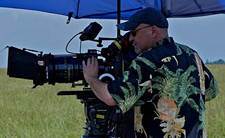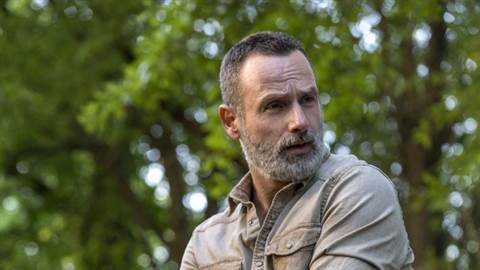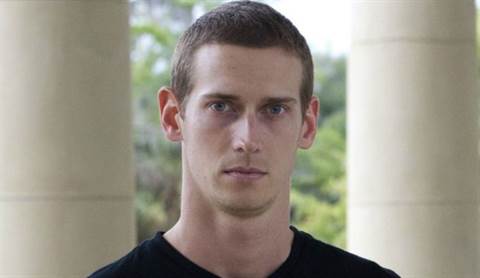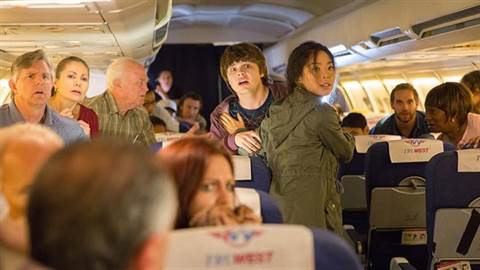
Q: What attracts you to the zombie genre?
A: I've always wanted to do my take on the zombie mythos, since I was a kid and I saw Romero's Night of the Living Dead - the 1968 black and white version. For our zombie show I'm calling that the Book of Genesis, and whenever there's a question about zombie behavior I go back to Night of the Living Dead. Here's my favorite thing: the endless debate among the fans about how fast a zombie can move. There are the folks who just can't stand seeing zombies running. I'm kind of in that camp, but if you look at the very first zombie in Night - the one in the cemetery chasing Barbara, he gets up to a pretty good jog. I'm keying our zombie behavior off of that film: Whether they're in a very languid state or they're on the attack, they'll move no faster than that first zombie in Night of the Living Dead.
Q: Of course your other Bible is Robert Kirkman's comic book series. How did you decide that was going to be the story?
A: There's no big mystery about how I came across The Walking Dead: I walked into a comic book shop some years ago and saw it. Since I happen to be a zombie nut, I took it home, I read it, and I said "Oh my God, there's a great series in this." And I've been the horse pursuing that particular carrot for five years now, delighted to finally be on the set.
Q: How do you think Kirkman's comic, and this television series, differ from previous zombie movies?
A: One of the things I found most intriguing about The Walking Dead was that it was so focused on the characters. Within the context of the cool zombie apocalypse, there was this very serious character drama. I thought, this is a great opportunity to satisfy not only zombie fans, but bring in an audience that wouldn't normally, necessarily, seek out a zombie film to watch.
Q: What's it like working with Andrew Lincoln who plays Rick, and Jon Bernthal who plays his partner Shane?
A: I love these guys! They're both stars, and they're just the sweetest and most able actors. I've worked with some really fantastic actors in my day, and I think these guys are as good as anybody. I'm counting my blessings here, because sometimes when you're directing you're counting your curses -- you're counting the things that are fighting you. But when everything is working in your favor and you've got people like this, oh man it's been nothing but blessings. We're golden, man.
Q: How does shooting in Atlanta compare to shooting in a more traditional place like Hollywood?
A: Atlanta and Georgia all-told is proving to be brilliant for us in terms of what it has to offer, in terms of what the story needed, in terms of the variety of locations -- it really is a fantastic place to shoot. It's hot as hell at the moment, so you gotta put on your, "OK it's going to be a hot, humid summer while we're working" hat - but once you get used to that and wear a towel on your head, you're pretty good.
Q: Can you tell me a little bit about what you're shooting right now?
A: Right now we're filming the shootout that kicks things off for the series. It's the kind of thing I haven't had a chance to do that often in my career. Most of my movies tend to be very sweet, talking dramas. I haven't had a chance to do that much action. So I'm actually getting a lot of my desire for that sort of thing out right now, and expressing my desire to roll a car six times. Yeah baby, I'm there! Let's load those guns with more blanks, absolutely. The first zombie is up tomorrow. It's going to be the very first scene of the entire series -- a good, gut-punch of a scene right off the bat.
Mr. Darabont is being called back to set, so that will be all for now. But stay tuned in the coming weeks for more dispatches from the production of AMC's The Walking Dead.



